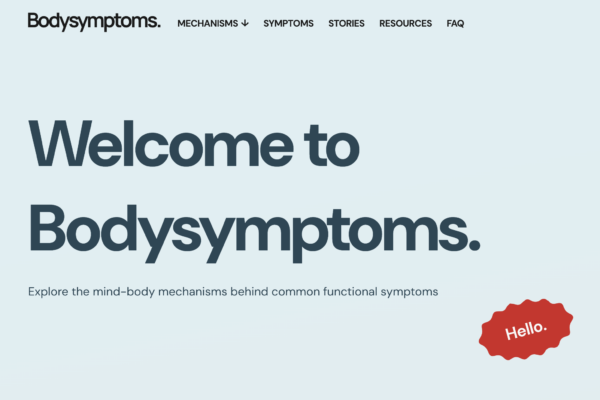Author: Nick Mamo.
Persistent somatic symptoms (PSS) are surprisingly common – as much as 33% of individuals in primary care, and 53% in specialty clinics experience PSS. The care trajectory for these individuals with PSS can be complex, and outcomes can be quite poor. It is becoming increasingly evident that a big part of the problem is caused by systemic issues, resulting in delayed diagnosis and inadequate care. An important aspect to understand is the experience of healthcare professionals (HCPs): often negative, with at times, difficult interactions with patients, but also challenges with the health service in general. So, what do healthcare professionals think about the care provided to patients, and how can this help in improving PSS care?
This is what Aleksandra Kustra-Mulder and her co-authors sought to find out, through a cross-European survey of HCPs in Germany, Italy, the Netherlands and Poland. By looking at the different experiences of HCPs in these four countries, we can gain valuable insights into the systemic challenges, and highlight potential solutions and priority points for change. These can influence health policy and new services which can improve patient outcomes, HCP well-being and service efficacy.
In total, 258 HCPs were included in the study. The respondents represented a wealth of experiences with 154 (60%) of the total respondents having more than 10 years of experience providing care across different settings (50% of whom work primarily in outpatient settings). The respondents also represented a range of disciplines across primary care and secondary care, with 38% being mental healthcare specialists and 22% medical specialists.
HCP views were explored to understand the healthcare-related factors associated with symptoms persistence, deterioration and improvement, as well as barriers to treatment and diagnosis. The landscape across these four countries, especially with regards to symptom persistence, deterioration and improvement is very different. For example, when looking at symptom deterioration, amongst German HCPs the biggest factor mentioned is timely and adequate care barriers, which included issues such as incorrect treatment, currently-ineffective treatments and no clear treatment plan. For Italian HCPs this is recognition and diagnostic processes, which included lack of early recognition, delayed, missed, and incorrect diagnoses, as well as considering everything as psychiatric. For Dutch HCPs it is the holistic versus biomedical approach, which included taking a purely biomedical approach, the mind/body division, unnecessary interventions and insufficient attention to biopsychosocial components. For Polish HCPs it is access and resource barriers, which included lack of access to specialists, restricted access to services and too-easy access to private tests for patients. This is not to say that they do not face similar barriers: in three of the four countries, insufficient knowledge, training and education of HCPs is highlighted as a significant factor. However, it is not felt to be the major factor influencing symptom deterioration in those countries.
Overall, Italian and Polish HCPs highlight access-related issues as the biggest factors influencing symptoms persistence and deterioration; whereas Dutch and German HCPs focused on care implementation. All four countries agreed on the importance of interdisciplinary collaboration as important for symptom improvement. This was alongside advocating for a more holistic approach, with comprehensive, PSS-focused training integrated into the care system, including as part of patient engagement.
The findings of this study highlight different challenges faced by HCPs in providing PSS care. Major focuses for HCPs seem to be access-related issues, the need for improving care implementation through better interdisciplinary consultation and more holistic, person-focused services. Another significant focus is on the need for improving PSS-focused training across disciplines and across service areas.
It is important to recognise the different needs of different countries, and the possibility for one country’s health service to learn from the challenges and successes of other countries. This can be done through cross-country collaboration, with sharing of experiences and resources. These results will also be important to policy makers, providing priorities for different countries, and recognising shared challenges, ideas, and solutions. It will also be important to consider when creating and applying guidelines. Many similar challenges are recognised, as well as similar care needs. So, similar guidelines can be used across different countries. These guidelines, however, will need to be applied differently based on the current needs and challenges faced by local care services, professionals and PSS-sufferers.
Nick Mamo is a Family Doctor, and a PhD student at Dimence Alkura, Institute for Specialised Mental Healthcare, Deventer and the Interdisciplinary Centre Psychopathology and Emotion Regulation (ICPE), University Medical Center Groningen, Groningen, the Netherlands.
This project has received funding from the European Union’s Horizon 2020 research and innovation programme under the Marie Skłodowska-Curie grant agreement No 956673. The article reflects only the author’s view, the Agency is not responsible for any use that may be made of the information it contains.









